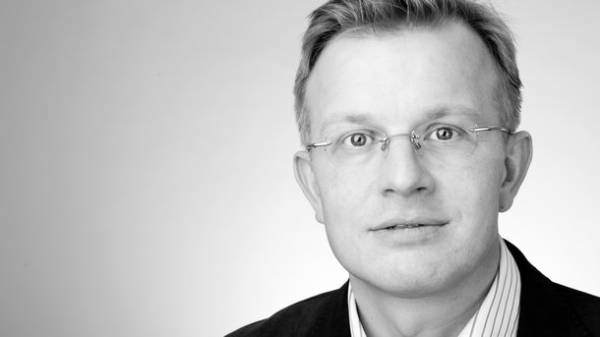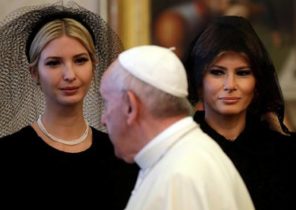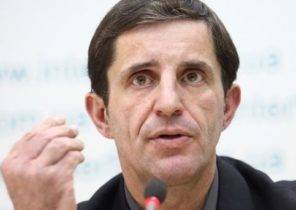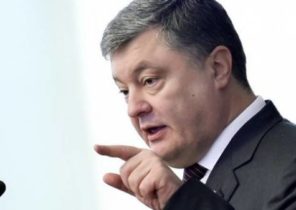
Increasingly, many Western politicians and experts, directly or indirectly, there are proposals to forget about the problem of Crimea in order to bargain with Russia over the Donbass. In their opinion, only in this case, Moscow would agree to withdraw their equipment and soldiers from the Donbass, began to implement the Minsk agreements. Recently, a similar statement we heard from the President of the German Free democratic party, Christian Lindner. According to the politician, the question of the Crimea now can not be resolved, the annexation of the Peninsula need to say never make, but not worth all the other issues tied to it, because in this case there is no progress in relations with Russia.
It is clear that this statement by the leader of the German liberals did in the hope to raise their rating a little more than a month in Germany elections to the Bundestag and Free democratic party has all the chances to get into Parliament and even to form a coalition with a political force Chancellor Angela Merkel. The statement of Lindner harshly criticized not only in Ukraine but also in Germany, advising him to cooperate with the German parties sympathetic to the Kremlin.
In pursuit of ratings, many Western politicians forget that one of the main goals of Putin to block Ukraine’s integration into the EU and NATO. That is why Moscow has annexed the Crimea and launched a military aggression in the Donbas to Kiev complicate the reform process. And the upcoming Russian-Belarusian military exercises “West-2017” also tries to exert military pressure on Ukraine from the North. “Today” interviewed the senior program Director of the Berlin Marshall Fund “Germany-USA” Joerg Forbrig on the conditions for Russia to fulfill the Minsk agreements, the success of the new state Department special envoy Kurt Volker, and the true purpose of the Russian-Belarusian military exercises.
– A statement of Christian Lindner made a lot of noise in Ukraine. In fact, we understood it as “forget about Crimea if you want to return Donbass”.
– Statement by Lindner has led to great irritation and debate not only in Ukraine but also in Germany. He suggested that in order to bring relations with Russia from the current impasse should occur two things. The first – the recognition that the Russian annexation of the Crimea can be “permanent interim agreement”; the second is to ease the sanctions against Russia, even if Minsk will be executed partially. These comments caused an immediate and massive criticism. The Government (Germany – Ed.) rejected his proposal, as key people in the foreign policy of the Social democratic and the green Parties, the expert community and the mainstream media. This reflects a broad and stable consensus in Germany that the Russian annexation of Crimea is unacceptable, and that the lifting of sanctions against Russia requires the full implementation of the Minsk agreements. This leaves no room for any kind of deals with Russia at Ukraine’s expense.
– At the same time we know that the German liberals were among the most consistent in the issue of Russian aggression against Ukraine and constantly criticized Chancellor Merkel for her “soft” stance toward Putin. What has changed?
– Actually it is not. Chancellor Merkel, to the surprise of many, was a very exacting and principled in its position about the Russian aggression against Ukraine. She was the “key” to the introduction of European sanctions, it is closely coordinated policy of sanctions with the Obama Administration and was Central in the negotiations under the Minsk agreements, which, despite the failure in ending the war in the Donbas, are a basis for sanctions against Russia. German liberals on the other hand was virtually absent in this process simply because they were not represented in the German Parliament in recent years. If, in the case of Christian Lindner, they now raise questions about Russian policy is clearly linked to upcoming elections in Germany. In different directions. The party tries to recover his profile on foreign policy in the hope to become part of the next government and could even control the Ministry of foreign Affairs. The liberals are also trying to regain some of the votes they lost because of the far-right Alternative for Germany, a friendly Russia. Finally, the liberal FDP (Free democratic party – Ed.) is clear probiznes party and hopes to capture the concern among many German businessmen in connection with the conflict with Russia. Should be, all these reasons pushed Lindner, leader of the liberal party, to such statement.
– What happens in German politics? How are the preparations for the elections? Some parties have a chance to get into the Bundestag? What are the chances of a Merkel re-election for a fourth term?
– Only six weeks before the election, the picture is less clear. Angela Merkel and her conservative bloc will clearly win the elections with around 40% support. Their main competitor, the social Democrats headed by former President of European Parliament Martin Solcom, which opinion polls give around 24%. The other four parties likely to enter Parliament with 6-9% support: more social-liberal, Green and more economically liberal FDP, and the two extreme parties from the far-Left and far-right Alternative for Germany.
Depending on the exact score there are several options for a coalition that will form the next government. The conservatives can go into a coalition with the liberals or Green, or both, or may decide to continue the current coalition with the social Democrats. It’s really an open question. But it is clear enough that Merkel will be Chancellor for the fourth time.
– German politicians speculating on the Ukrainian question during the election race?
– Remarks to the Lindner Ukrainian question was almost absent in the election campaign. And this is understandable. Elections (for the Bundestag – Ed.) as a rule, relate to internal matters, which now include issues of taxes, social benefits and public investment. Also we can see other issues appearing in the debate: internal security, terrorism, refugees and the scandal surrounding the automotive industry (at the end of July the Minister of transport of Germany has withdrawn 22 thousand cars Porsche, the company is one of Volkswagen, because they installed illegal software to control emissions – Ed.). And although we still do not know exactly, but there are a lot of expectations that Russia will interfere in the elections just as it did in the US or in France. If such a Russian intervention will happen in the German elections, then, of course, the Ukrainian issue could be discussed. But most importantly, whatever the election results, the position and policy of Germany towards Ukraine and Russia will remain essentially unchanged.
– Germany and EU in General, fears of increasing Russian military presence on its borders? Is it possible to say that the EU and Germany in particular trying not to irritate the Russian statements about the possible future membership of Ukraine in EU and NATO?
Naturally the increase of Russian military presence is a serious problem, both for Germany and for the EU. Germany also responded to the situation by participating in a police control over the airspace of the Baltic States and the leadership of the joint forces of NATO in Lithuania, increasing its defense budget. However, in parallel with these relatively recent military action Germany remains politically cautious and avoid actions and statements that could provoke a stronger Russian aggression. For many years he (the EU – Ed.) avoids providing Ukraine and other Eastern neighbors clear membership prospects in the EU and NATO. And in the near future this position will not change.
– How do You evaluate the unity of the EU and Germany in the issue of anti-Russian sanctions?
– It is clear that the EU and Germany, there are many skeptical or openly acting against anti-Russian sanctions. However, despite these strong group of critics, whether in politics or in business, we’ve all seen how every six months the sanctions unanimously extended. One of the reasons, of course, is that Pro-Russian parties and politicians (supporting the lifting of sanctions – Ed.) remain in the minority. Another probably is that for most German and European business, Russia is not the main market. The key institutional factor – in March of 2015, EU leaders decided to link the anti-Russian sanctions with the implementation of the Minsk agreements, which Russia is not actually performed. Finally, the role played by close coordination of anti-Russian sanctions with the United States. And the fact that the United States has recently tightened its sanctions against Russia, will also help to maintain European unity in the anti-Russian sanctions. In General, there is a good chance that sanctions against Russia will continue to act, despite the criticism that we hear from some in Europe.
– Can we say that the friendship between Germany and Russia ended exactly when Russia annexed the Crimea and launched war on Donbass?
– Relations between Germany and Russia began to “cool off” for many years before the Russian aggression against Ukraine. Germans disappointed after many years of hopes on the transformation of Russia through the partnership. The business realized that, despite the huge potential of Russia, its dysfunctional market and legal system have done the business for most German companies in Russia unprofitable. Over time, the credibility of Russia and its leadership declined. So when Russia annexed the Crimea and invaded the Donbass, of course, that the majority of German politicians and citizens were on the side of Ukraine and expressed their criticism in relation to Russia. This is a fundamental rejection of Russia’s actions and the underlying solidarity with Ukraine have been stable over the past three years. And if Russia will not change fundamentally its political course within the country and abroad, it does not return the support of most Germans, except the very left and very right of the minority.
– Do you think Germany will maintain the leadership in the Normandy format? We see the powerful stance of the new President of France Rules and steps by the United States, which recently appointed Kurt Volker.
– In the near future a key role of Germany in the Norman format will not change. First, almost certainly in September Merkel re-elected. In the struggle with Russia and ending the war in Ukraine, it has invested more political capital than any of the Western leaders. She fully understands, perhaps even more than many in the EU that the European (and Euro-Atlantic ideal) unity – the key to the confrontation of Russian revisionism. Sanctions, with their allusion to the Minsk agreements are the primary evidence for this unity. As a result, it is inconceivable that she left this role (leader – Ed.) for someone else. Second, the macron may have made dramatic and successful debut on the political scene in France and at the international level, but first he will have to prove that it can promote things in their own country. He will face a “hot” autumn, trying to get some of these necessary reforms. If the Makron will succeed, he faces tough negotiations with Germany on the issue of reforming the EU, from the Eurozone to the defense. Given this pressure and that on the horizon of a breakthrough in the Channel format is not expected, it is unlikely to assume a more active role than his unfortunate predecessor. Thirdly, the appointment of an American envoy Kurt Volker, though welcome, hardly indicates a strong involvement of America or even the replacement of the Normandy format of a direct Russian-American canal (interaction – Ed.). Such a channel existed before via Victoria Nuland and Vladislav Surkov (assistant to the President of the Russian Federation – Ed.) and were unsuccessful. And in a broader sense, the new us Administration so overshadows the shadow of its Russian ties, which she probably will leave intractable disputes in Ukraine largely to Europeans.
– Why us-German relations were getting worse? What are the reasons for the differences?
– The relations of Germany and America for decades seen UPS and downs. They shocked the opposition of Germany against the us intervention in Iraq in 2003, the non-participation of Germany in the intervention of NATO in Libya in 2011 and the NSA surveillance in 2013 (when it became known that the national security Agency USA (NSA) bugged the phone of Merkel – Ed.). However, despite these stresses, the relationship is regularly recovered and again became very close, as recently between President Obama and Chancellor Merkel. After each drop, the lifts were always due to the understanding on both sides of the Atlantic that the U.S. and Germany need each other. For Germany, the US remains the fundamental guarantor of German and European security; for the United States Germany a strong and stable EU maintain peace in Europe and strengthen global power the United States. This mutual benefit and understanding of the new Administration questioned. President trump had an ambivalent attitude to the US support of European integration and commitment to the collective defence of NATO, which were the two pillars of US foreign policy in all post-war Administrations. The new President expressed a preference for unilateral and protectionist approach led the United States out of the Paris climate agreement and the TRANS-Pacific partnership. This provoked the appearance of alarm bells in Berlin, which is traditionally committed to the principles of multilateralism and free trade. Donald trump also quite aggressive and particularly singled out Germany because of its massive trade surplus and the inability to spend enough money (2% of GDP – Ed.) on defense. These political differences is added to the massive decline of mutual trust: the Germans have little trust in US when trump, like Russia under Putin. In General, U.S.-German relations are probably at a record low and quite difficult to understand how they can be soon restored.
– As for the Ukrainian-American relations, they leave much to be desired? Trump didn’t abandoned the idea of rapprochement with Russia.
– Basically, relations between Ukraine and the United States remain unchanged. President trump has not followed the rhetoric of his election campaign to ease sanctions against Russia, imposed for its aggression against Ukraine. On the contrary, these sanctions along with the importance of the Minsk agreements become part of U.S. law (Congress passed and trump signed a bill, which Obama introduced sanctions against Russia moved from the category of decrees in the category of full-fledged law – Ed.). It will not allow Trump to reach the big reset relations with Russian, jumping over the heads of Ukrainians at the expense of Ukraine. The new US special envoy Kurt Volker proven hardliner against Russia. The debate about whether the United States to provide defensive weapons to Ukraine, started again in Washington. I doubt that such arms deliveries will start as I doubt that the new envoy will be more successful of his predecessor, or that sanctions will change the behavior of Moscow. What is important, however, that the United States remains committed to supporting Ukraine and punish Russia. All this is generally good for Ukraine news.
Well, then, under what conditions Russia will leave the Donbass and will bring back the Crimea?
– In my opinion, Russia annexed the Crimea and invaded the Donbass for two reasons. First, it was hoped that these two conflicts will forever distract Ukrainian politicians and the public from the reforms initiated after the revolution of Dignity.
Second, the Kremlin knows that these two unresolved conflict make it virtually impossible Ukraine’s accession to the EU and NATO, even if one day all the other conditions for membership are fulfilled. In other words, the Crimea and the Donbass – an effective “veto” in the hands of Moscow on issues of domestic and international development of Ukraine.
I see only two possible exits from this status quo. It is unlikely that Moscow will give up their “veto”. For many reasons this confirms that the annexation of Crimea and invasion of Ukraine was wrong and changed the course. In fact, it would also mean that Russia recognizes Ukraine’s right to choose democracy and to join Western organizations. Of course, this will be a direct threat to forces which are in Russia (which may plunge Russia into uncontrolled chaos, and the West take the position that it is better controlled chaos in Russia than uncontrolled – Ed.). Therefore, a more realistic way for Ukraine and its Western partners to neutralize those “veto” of Russia. Ukraine needs to promote reforms to create a working democracy and the rule of law, root out corruption, modernize the economy, and become a strong society and a functioning government. In parallel, the West should support closer integration of Ukraine into the EU and NATO, and, in the end, you will need to ensure a clear prospect of membership in both organizations. Successful reforms from Ukraine and closer ties with the EU and NATO will draw trumps Russia in the Crimea and the Donbass is useless. And that only over time will also open the way for a full return of the two regions in Ukraine.
Everytime a large-scale Russian-Belarusian military exercises. The West has called them a real threat to NATO’s security. Why Russia and Belarus are they now?
– Upcoming military exercises “Zapad-2017” is a big headache for many. In the past we have already seen how Russia has used military exercises as cover for the transfer of equipment and personnel for further military aggression (as, for example, in 2014, conducting exercises near the Eastern border with Ukraine – Ed.). Consequently, many fear that the “West-2017” will also be the starting point for further Russian aggression. There are a number of possible targets (holding the exercise – Ed.). One of them is Belarus. For several months the Belarusian and foreign experts point to the fact that Russia can use its military presence in Belarus, to put pressure on Alyaksandr Lukashenka, his disobedient ally in Minsk. Another goal is Ukraine. If Belarus becomes a full-fledged Russian foothold in the upcoming exercises (Ukrainian and foreign military experts pointed to the risk that the Russian military contingent after the exercise can remain in Belarus – Ed.) Ukraine will face Russia’s military pressure from the North in addition to the existing East and South. Finally, Poland and the Baltic States, are members of the EU and NATO may well be targets of Russia. Concern focused on the so-called Suvalkija the corridor is the only land connecting the three Baltic States with its allies in NATO and the EU. “West-2017” takes place on both sides of this narrow corridor. Given these multiple threats, many in the EU, and Belarus and Ukraine in a state of high alert. And rightly so.







